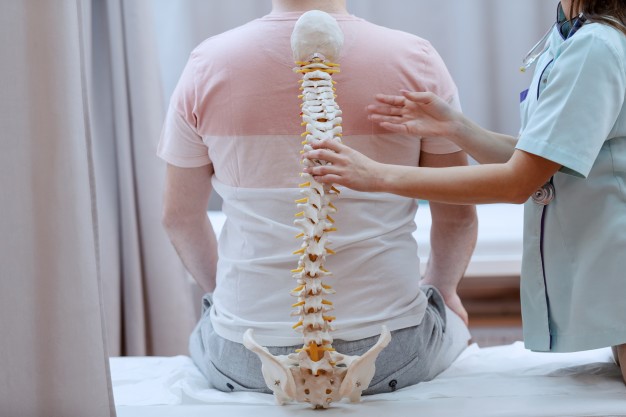A spine specialist is a medical expert mainly engaged in the treatment of spinal diseases. General experts include chiropractors, physiotherapists, orthopaedics, neurosurgeons, pain relievers, anesthesiologists, and several rheumatologists and neurologists. The speciality or expert group will largely depend on the type, severity, and term of a patient’s signs.
These doctors get trained to recognize and treat diseases that affect or originate from the spine through operation or other means. Therefore, plastic surgeons are sometimes called spine surgeons.
Orthopaedic experts know what they are doing. They spend at least eight years in school. The chiropractor manipulates the spine to make the posture easier, but only an expert can operate.
When to see a physician?
- Chronic pain
You can use several different levels to determine whether the pain is chronic.
Acute pain is short-lived, so it only happens for a few days or weeks. Usually, the cause will pass, and no additional remedial measures are needed to relieve the suffering. If your spine is still sore after four weeks, you may have subacute discomfort. Subacute pain can continue up to twelve weeks. Most of this pain is mechanical, which means it can be relieved without surgery. Sometimes you may need to see a chiropractor.
It gets followed by chronic pain that lasts more than twelve weeks, even after treating the injury or underlying cause. They are masters of low back pain, and about twenty per cent of low back pain patients are affected by low back pain every year. If you are experiencing chronic pain, it is time to make an appointment with a spine specialist.
- Bladder and bowel complications
If you have run to the bathroom or sit on the toilet for a few hours, it may be time to see an expert. Some problems that hit the bowel, bladder, and back are irritable bowel syndrome (IBS) and nerve damage. Bowel syndrome can cause severe abdominal cramps and bowel movements, which can traverse waist problems. Nerve injury in the back can cause abdominal discomfort and disrupt metabolism.
- Feet or leg pain
Pain or numbness in the legs or feet, followed by back pain, is a clear sign that you need to consult a specialist. Pressure on the nerves or spine can cause tingling or weakness in the hips, legs, and feet. Sometimes, a herniated disc can compress the sciatic nerve and disrupt the control of the leg muscles. Cervical radiculopathy may also be a problem. It happens when the nerve roots near the cervical spine get compressed. It can cause discomfort or numbness in the extremities. The problem could get solved mechanically, but in some cases, surgery is a must.
Benefits of seeing a spine specialist
- Better diagnosis
One of the most significant things to get from a spine specialist is to diagnose the cause of the symptoms. Many times, the cause of your signs is unclear. It means you still cannot solve the problem. Common spinal diseases can reflect each other. When you meet with a specialist, they will first ask about your symptoms to get a complete picture of what you are going through.
- Expert opinion
When you meet with a spine specialist in Clermont, you have the opportunity to get their specialist advice on your condition. These specialists receive extensive training in spinal health and surgery.
- Non-surgical therapy
In most cases, the doctor recommends some non-surgical treatment, alone or as a supplement to surgery. Non-surgical procedures such as drugs can relieve symptoms in the short course, while practices such as physical therapy can support your spine in the long term.
If you experience back pain or related symptoms, effective treatment now means better well-being and condition of life. It also saves on long-term medical care because you may require less medical care in the future.






